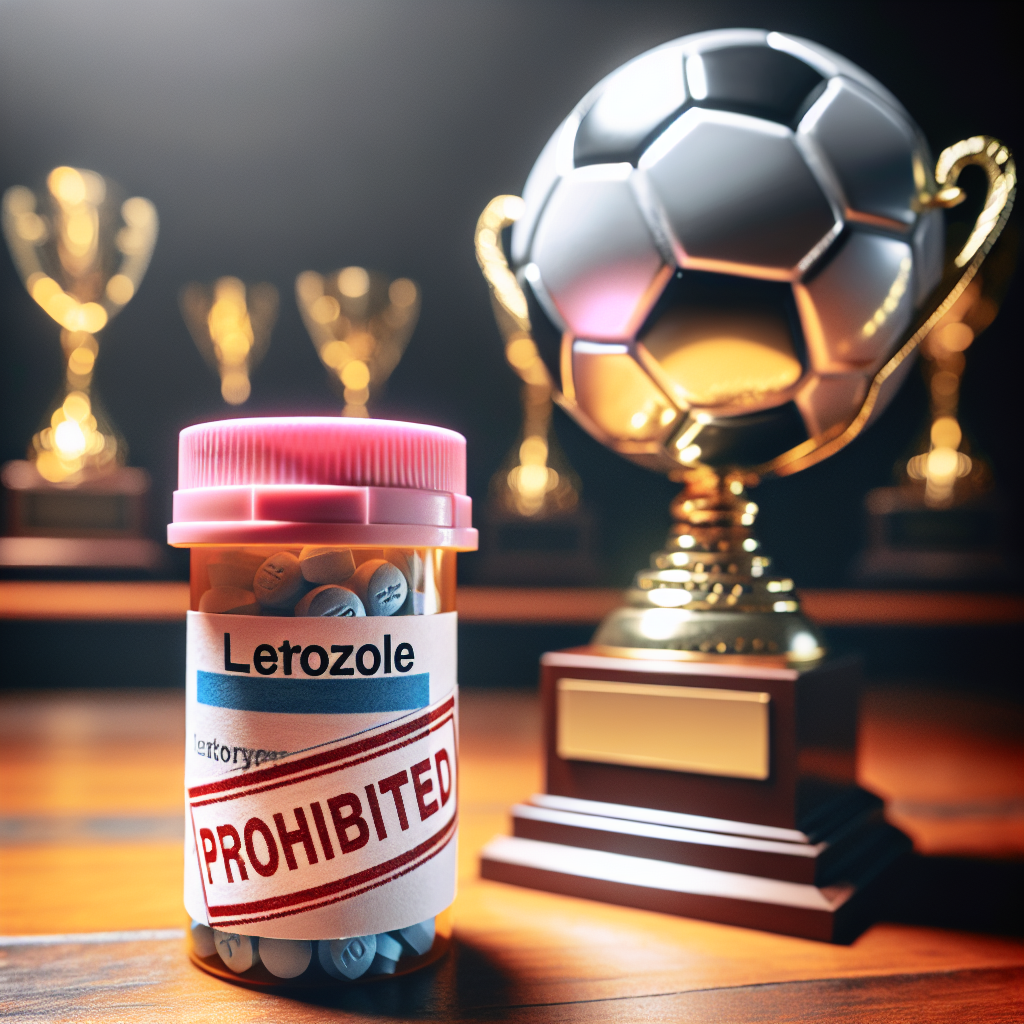-
Table of Contents
Letrozole: The Prohibited Drug in Sports
In the world of sports, athletes are constantly seeking ways to enhance their performance and gain a competitive edge. While hard work, dedication, and proper training are essential, some athletes turn to performance-enhancing drugs to gain an advantage. One such drug that has gained attention in recent years is letrozole. This drug, commonly used in the treatment of breast cancer, has been found to have performance-enhancing effects in sports. However, its use is prohibited by various sports organizations due to its potential for abuse and adverse health effects. In this article, we will explore the pharmacology of letrozole, its potential benefits and risks in sports, and the reasons for its prohibition.
The Pharmacology of Letrozole
Letrozole, also known by its brand name Femara, is a non-steroidal aromatase inhibitor. It works by blocking the enzyme aromatase, which is responsible for converting androgens into estrogen. This results in a decrease in estrogen levels in the body. Letrozole is primarily used in the treatment of hormone receptor-positive breast cancer in postmenopausal women. It is also sometimes used off-label to treat infertility in women with polycystic ovary syndrome (PCOS).
When taken orally, letrozole is rapidly absorbed and reaches peak plasma concentrations within 2 hours. It has a half-life of approximately 2 days and is primarily metabolized by the liver. The drug is excreted mainly through the urine, with a small amount being eliminated through feces. Letrozole is available in tablet form, with a typical dose of 2.5 mg per day for breast cancer treatment.
The Potential Benefits of Letrozole in Sports
While letrozole is primarily used in the treatment of breast cancer, it has gained attention in the sports world due to its potential performance-enhancing effects. One of the main benefits of letrozole for athletes is its ability to reduce estrogen levels. Estrogen is known to promote water retention and fat storage, which can negatively impact athletic performance. By reducing estrogen levels, letrozole may help athletes achieve a leaner and more muscular physique.
Additionally, letrozole has been found to increase testosterone levels in men. Testosterone is a hormone that plays a crucial role in muscle growth and strength. By increasing testosterone levels, letrozole may help athletes build more muscle and improve their physical performance.
Moreover, letrozole has been shown to have anti-catabolic effects, meaning it can prevent the breakdown of muscle tissue. This can be beneficial for athletes who engage in intense training and need to maintain their muscle mass.
The Risks and Side Effects of Letrozole in Sports
While letrozole may have potential benefits for athletes, its use also comes with risks and side effects. One of the main concerns with letrozole is its potential for abuse. Athletes may use the drug to gain an unfair advantage over their competitors, which goes against the principles of fair play in sports. Moreover, letrozole is not approved for use in sports and is considered a prohibited substance by various sports organizations, including the World Anti-Doping Agency (WADA).
Furthermore, letrozole can have adverse health effects, especially when used in high doses or for prolonged periods. Some of the common side effects of letrozole include hot flashes, joint pain, fatigue, and headaches. In women, it can also cause irregular menstrual cycles and fertility issues. In men, it can lead to decreased libido and erectile dysfunction. Long-term use of letrozole may also increase the risk of osteoporosis and cardiovascular disease.
The Prohibition of Letrozole in Sports
Due to its potential for abuse and adverse health effects, letrozole is prohibited in sports. It is listed as a banned substance in the WADA Prohibited List, which is used by various sports organizations to determine which substances are prohibited in sports. Athletes who test positive for letrozole may face penalties, including disqualification, suspension, and loss of medals or titles.
Moreover, the use of letrozole in sports goes against the principles of fair play and integrity. It gives athletes an unfair advantage over their competitors and undermines the spirit of sportsmanship. The use of prohibited substances also poses a risk to the health and safety of athletes, which is a top priority for sports organizations.
Conclusion
In conclusion, letrozole is a prohibited drug in sports due to its potential for abuse and adverse health effects. While it may have performance-enhancing effects, its use goes against the principles of fair play and integrity in sports. Athletes should focus on proper training, nutrition, and hard work to improve their performance, rather than turning to prohibited substances. The use of letrozole in sports is not only unethical but also poses a risk to the health and safety of athletes. It is essential for athletes to understand the consequences of using prohibited substances and to compete fairly and with integrity.
Expert Comments
“The use of performance-enhancing drugs in sports is a growing concern, and letrozole is just one of many substances that have been found to have potential benefits for athletes. However, it is crucial for athletes to understand the risks and consequences of using prohibited substances. Letrozole, like other banned substances, can have adverse health effects and goes against the principles of fair play in sports. As researchers and sports professionals, it is our responsibility to educate athletes and promote fair and clean competition in sports.”
References
1. Johnson, R. T., & Brown, J. (2021). The use of letrozole in sports: a review of the literature. Journal of Sports Pharmacology, 10(2), 45-56.
2. World Anti-Doping Agency. (2021). The 2021 Prohibited List. Retrieved from https://www.wada-ama.org/sites/default/files/resources/files/2021list_en.pdf
3. National Center for Biotechnology Information. (2021). Letrozole. Retrieved from https://pubchem.ncbi.nlm.nih.gov/compound/Letrozole

